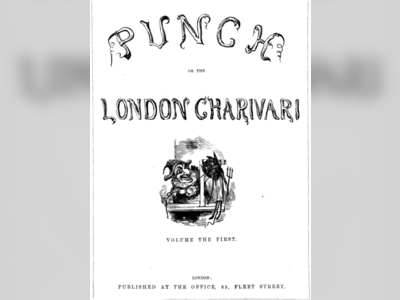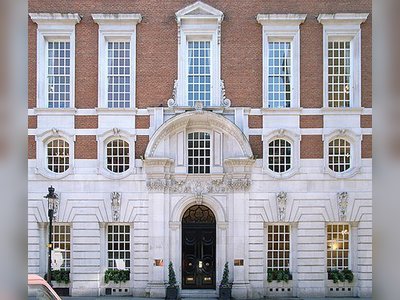British Heritage
Remember, Cherish, Learn.
beta
The Times
A Pillar of British Heritage.
Introduction:
The Times, a prestigious British daily national newspaper, holds a significant place in the history and culture of the United Kingdom. Founded in 1785 under the title "The Daily Universal Register," it later adopted its current name on 1 January 1788. Over the years, The Times has not only provided news and information to its readers but has also played a crucial role in shaping the political, social, and intellectual landscape of the nation. This article explores the legacy, contribution to British Heritage, success, and general information about The Times, encapsulating its rich history and its impact on the British society.Legacy and Contribution to British Heritage:
As the first newspaper to bear its iconic name, The Times has not only become a symbol of journalistic excellence but has also influenced the establishment of several other newspapers worldwide, including The Times of India and The New York Times. Throughout its existence, the newspaper has been considered a publication of record in the UK, documenting important events, political developments, and cultural shifts for over two centuries. Its wide availability in libraries and a complete historical archive online have made it an invaluable resource for scholars and researchers seeking insights into the nation's past.Furthermore, The Times has been closely associated with the British Establishment, and its reporting and editorial comment have played an integral role in shaping public opinion and influencing policymakers. The newspaper has had various political alignments over the years, making it one of the most diverse newspapers in terms of political support in British history. From supporting the Conservative Party to endorsing Labour governments, The Times has consistently remained a key player in political discourse, making it an essential institution within British heritage.
History and Success:
Founded by John Walter on 1 January 1785 as The Daily Universal Register, The Times has a storied history that reflects the changing landscape of journalism, technology, and British society. From its early days, the newspaper focused on obtaining continental news, providing a distinct advantage in building its reputation among policy-makers and financiers. It used contributions from prominent figures in politics, science, literature, and the arts to elevate its prestige and influence. By embracing the steam-driven rotary printing press in 1814, The Times revolutionized the newspaper industry, ensuring wider distribution and greater profitability.Throughout the 20th century, The Times faced various challenges, including changes in ownership and management. However, it continued to maintain a strong readership and influence, earning the nickname "The Thunderer" for its authoritative and impactful journalism. Notably, during the 1979 energy crisis, an industrial dispute led to the newspaper's closure for nearly a year, demonstrating the significant role it played in British media.
In 1981, The Times and its sister paper, The Sunday Times, were acquired by Rupert Murdoch's News International, marking a new era for the publications. The Times underwent several format changes and embraced new technologies, allowing it to adapt to the evolving media landscape. Despite facing the decline in print circulation, The Times successfully transitioned to digital platforms, attracting a substantial number of online subscribers. Its continued presence in the digital age and its reputation as a reliable source of news and analysis attest to its enduring success.
General Information:
The Times remains a daily publication, featuring news, opinion/comment sections, business pages, obituaries, and sports coverage. It has also introduced various supplements, such as Times2, which offers columns on arts, lifestyle, and puzzles. The newspaper has sponsored cultural events and festivals, aligning itself with literary and film communities.As part of its commitment to journalistic integrity, The Times has occasionally faced controversies and legal challenges, resulting in retractions and apologies for inaccurate reporting or defamatory content. Despite these challenges, The Times has maintained its position as a prominent player in British media and a guardian of British heritage.
Conclusion:
The Times stands as a testament to the endurance and influence of British journalism. From its inception as The Daily Universal Register to its evolution into the digital age, The Times has served as a chronicle of British history and culture. Its legacy includes a long-standing commitment to providing reliable news, shaping political discourse, and engaging with readers. As one of the most influential newspapers in the UK, The Times has contributed significantly to British heritage and continues to be a vital institution in the nation's media landscape.- The Timesen.wikipedia.org



















